#jungian archetypes
Text
The privilege of a lifetime is to become who you truly are
- Carl Jung
#shadow self#beautiful quote#shadow work#individuation#jungian psychology#psychology quotes#psychology#jungian shadow#carl jung#jung#jungian archetypes#philosophy quotes#philosophy#witchblr#archetypes#shadow work quotes#inspiring quotes
713 notes
·
View notes
Text
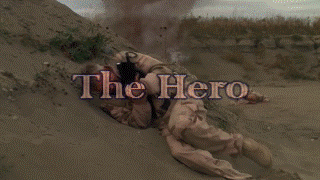
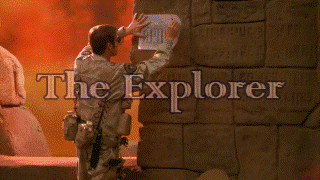

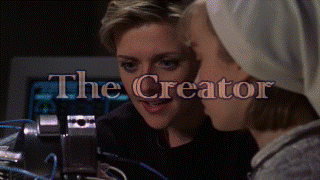
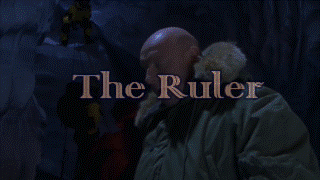
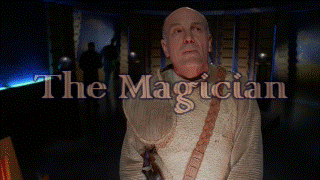
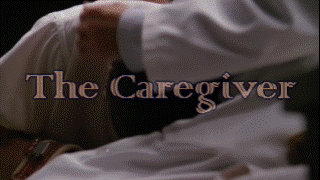


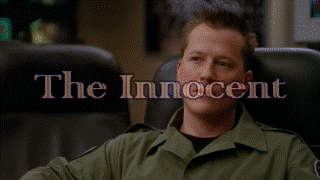
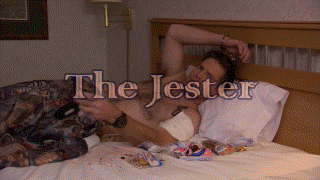

The Jungian Archetypes: Stargate SG-1 Edition
#Stargate SG1#Jungian Archetypes#Jack O'Neill#Daniel Jackson#Samantha Carter#Teal'c#General Hammond#Jacob Carter#Janet Fraiser#Cassandra Fraiser#Bra'tac#Jonas Quinn#Cameron Mitchell#Vala Mal Doran#T.V.S.
190 notes
·
View notes
Text
So long as you feel the human contact, the atmosphere of mutual confidence, there is no danger; and even if you have to face the terrors of insanity, or the shadowy menace of suicide, there is still that area of human faith, that certainty of understanding and of being understood, no matter how black the night.
~Carl Jung, CW 17, Para 181
#carl jung#jung#poetry#quotes#dark academia#occult#magick#daily poem#jungian psychology#jungian shadow#jungian archetypes#jungian#psychology
79 notes
·
View notes
Text
Art is important for it commemorates the seasons of the soul.
Clarissa Pinkola Estés, Women Who Run With the Wolves
#clarissa pinkola estes#women who run with the wolves#quotes#wild woman#archetypes#jungian psychology#jungian archetypes#jungian analyst#art therapy
89 notes
·
View notes
Text
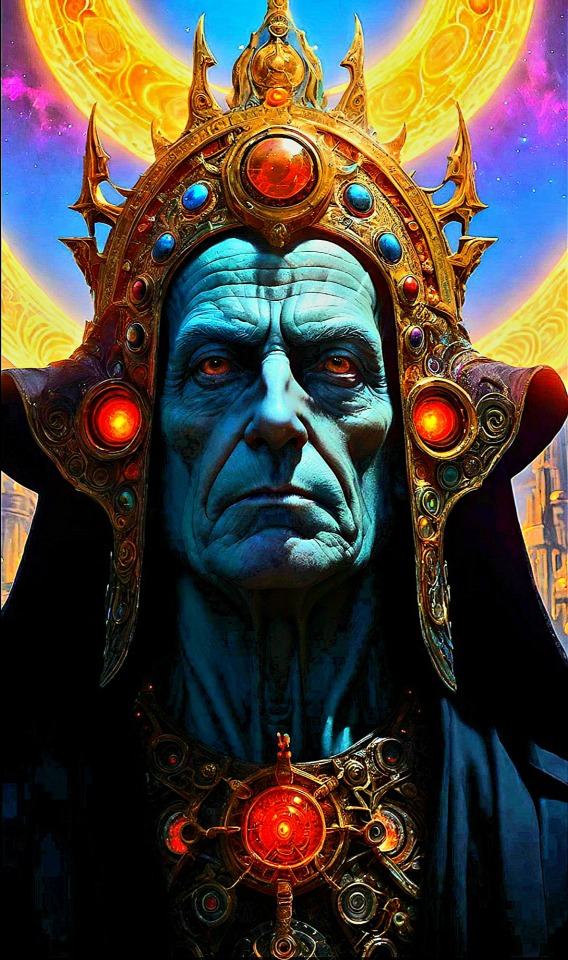
#artists on tumblr#ai artwork#alternative#fantasy art#psychological art#jungian archetypes#“The Internal Observer*#no judgements#only watches
21 notes
·
View notes
Text
youtube
Mother is back <3 @lesbianmindflayer-deactivated20
As always I love your analysis <3 I have been so well nourished
Okay critique time:
@ 8:33 - there is a mention that Henry’s influence makes the Hive Mind evil (see previous posts about this I swear one day I’ll do a proper catalogue) BUT essentially (spoilers for the play & skip this paragraph if you don’t want to be spoiled I’m sure they’ll release a version for Netflix v soon) after Henries family moved to Hawkins, he was taken to the upside down (just like Will) and when he came back was a little possessed (just like Will) although the difference being that Henry was never purged of the Mind Flayer like Will was… This leads to the conclusion that the Mind Flayer and Hive Mind is what is evil. That is just the facts and now to some of my own theory around this. The Mind Flayer/Hive Mind is just the culmination of the shadow of the town/world, it is the psychic realm of those who cast away their emotions shadow in order to continue living in the main world. When this shadow acts from ignorance seeks to destroy whatever is causing harm rather than understanding who, what, why, when, how etc. it sees the world as evil i.e. colonisation, homophobia etc. Possibly we will see a resolution where there Hive Mind is not cast away into the psychic realm but seeks the spiritual growth of itself and community… this is a little rough around the edges and could use some work but that’s the gist of it.
@12:10 - I really think inversion (colour inversion in this sense but also inversion in tarot is like a warning (I’m not too well versed in tarot if anyone can help me out here<3)) and shadows (in the unconscious/Jungian sense) have a really big part in this show and wouldn’t be surprised if we have missed so many hints by not looking through this lense too <3 great find!
@15:00 - also looks like it could potentially be a drawing of a ghost busters cast member by the way it kind of looks like a proton pack - throw back to season 2 :) crazy together
#stranger things#byler#st s5 theory#mike wheeler#will byers#st5 leaks#st5#elmax#st5 speculation#stranger things 5#tarot#jungian psychology#jungian archetypes#Youtube
24 notes
·
View notes
Text
The Red Book, Liber Primus Part Three
Previous section: https://nyxshadowhawk.tumblr.com/post/740006966416588801/the-red-book-liber-primus-part-two
Picking right up where I left off...
The Splitting of the Spirit
So, now it’s time for Jung’s own Shadow work.
To journey into Hell is to become Hell itself.
Damn. You know, I’d never considered that before, but seeing it written out like this really helps it to sink in. Journey into Hell, and you take on its essence — you become monstrous.
[The desert] seems inhabited by magical beings who murderously attach themselves to me and daimonically change my form. I have evidently taken on a completely monstrous form in which I can no longer recognize myself. It seems to me that I have become a monstrous animal form for which I have exchanged my humanity.
I’m reminded of the concept of Beasthood in Bloodborne, in which drinking the blood of gods turns one into a beast that constantly craves more blood. It’s outright stated at multiple points in the game that the beast is part of man’s inherent nature, a “horrific and unwelcome instinct deep within the hearts of men.” I know exactly what it feels like to transform into this beast-possessed self in meditation, to temporarily suspend one’s humanity and become a savage thing. So, I understand what Jung is going through here.
What follows is a dialogue between Jung and his soul, in which he is indignant at the darkness and animality and stupidity of it all. It seems very backwards to Jung that he should be getting this instead of knowledge, truth, and light. The soul answers obtusely, frustrating him further. It insists that its way is still that of knowledge and light (because Shadow work is necessary for enlightenment), but Jung doesn’t understand this yet. Jung cries out that he has worshipped the soul like a god, but now it wears the face of a devil, of “eternal mediocrity” (showing that Jung associations devilishness/shadow with banality and mundaneness). Everything feels insane and pointless, and he doesn’t like it. It’s counterintuitive that this should be the path towards knowledge and enlightenment. He engages in civil war with himself.
It’s so wild to witness someone else’s Shadow work, and straight from the horse’s mouth. I’m watching him go through almost the exact same thing that I went through, but the things that trigger Jung are not the same things that trigger me. I have much less of an issue with the idea of banality or meaninglessness, and Jung doesn’t seem to have any of my issues around power or sex. Everyone’s Shadow looks different, but the process is always the same.
It’s also interesting to me that Jung’s soul basically becomes his Shadow in this scene — it “wears the mask of a devil, a frightful one” — but he still calls it the soul and not the Shadow. So, does that mean that the Shadow is an aspect of the soul? My own Shadow appears to me as a man, so does that mean that he’s actually my soul, but wearing a Shadowy face? He only wears that face some of the time, not all the time. He’s both my beast and my prince. That’s partly because my Shadow aspects all have to do with power, but it also hearkens back to the duality of sacrificer and sacrificed.
I felt myself transformed into a rapacious beast. My heart glowered in rage against the high and beloved, against my prince and hero, just as the nameless one of the people, driven by greed for murder, lunged at his dear prince. Because I carried the murder in me, I foresaw it.
Because I carried the war in me, I foresaw it. I felt betrayed and lied to by my king. Why did I feel this way? He was not as I had wished him to be. He was other than I expected. He should be the king in my sense, not in his sense. He should be what I called ideal. My soul appeared to me hollow, tasteless and meaningless. But in reality what I thought of her was valid for my ideal.
People project onto their leaders. It can be hard for you to accept that your leaders are still people, that they are still flawed, and that they have Shadows of their own. Instead, you want the leader to fulfill your agendas and make the world in your image; to be king according to your idea of what a king is and what a king should do, instead of the king’s own. When the king inevitably demonstrates that he is, in fact, a unique person who has his own personality and agenda, the people feel betrayed and turn on him. Think of all the complaints about politicians not being who you thought they were when they get into office! During campaigns, they pander to the projections, and then their real self inevitably shows because they’re people and not ideas.
Because of all these projections, leaders tend to reflect the unconscious of the people they rule to some extent, especially if the leader is elected by those people. However, sometimes the leader ends up being the pure, concentrated Shadow of the society they rule. Whenever the Shadow goes unaddressed, it takes over, often in spectacular fashion. There’s an obvious example of one such leader in Jung’s time and place. There’s also an example of one such leader in my time and place. If a writer of dystopian fiction created a character that mixed together every bad stereotype of Americans into one person, then named that character after McDonalds and a word that means both “to overcome” and “fart,” I would tell them that they were being way too ham-fisted and writing a strawman instead of a person. Who the hell writes this shit?!
The Murder of the Hero
In a dream, Jung (helped by a colonial “savage” stereotype of a dark-skinned indigenous person) slays the hero Siegfried, who rides on a chariot of bone. Siegfried is blond and blue-eyed, representing all that is good and noble in Jung’s mind. (The footnotes say that Jung didn’t actually feel attached to Siegfried, but this was the image his mind latched on to.) Jung is so disturbed by this dream that he feels like he must take his own life if he does not figure out what it means. He feels better after the spirit of the depths says, “The highest truth is one and the same with the absurd.” I completely agree with that — often the most profound truths delivered by the divine are weird and nonsensical when understood using human logic. This is one of those things.
There is an illustration of this dream:
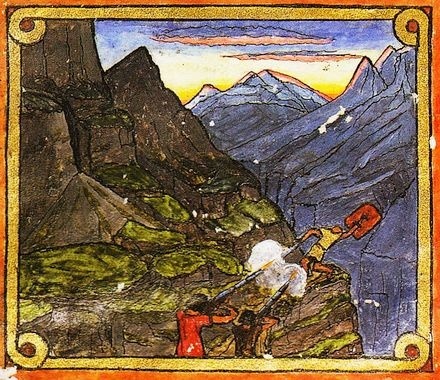
Jung sort of goes back and forth on what this dream means throughout The Red Book, but his eventual interpretation seems to be that the heroic ideal needs to die in order for one to confront the reality of the Shadow. Here’s his interpretation from Memories, Dreams, Reflections:
…suddenly the meaning of the dream dawned on me. "Why, that is the problem that is being played out in the world." Siegfried, I thought, represents what the Germans want to achieve, heroically to impose their will, have their own way. "Where there is a will there is a way!" I had wanted to do the same. But now that was no longer possible. The dream showed that the attitude embodied by Siegfried, the hero, no longer suited me. Therefore it had to be killed.
After the deed I felt an overpowering compassion, as though I myself had been shot: a sign of my secret identity with Siegfried, as well as of the grief a man feels when he is forced to sacrifice his ideal and his conscious attitudes. This identity and my heroic idealism had to be abandoned, for there are higher things than the ego's will, and to these one must bow.
This isn’t what my interpretation of the hero’s death would be. My immediate thought was that heroes or kings always have to die as part of the alchemical process, because that represents ego death, and resurrection always follows. But it is significant that Jung himself is not the one who dies, he’s the one who shoots, accompanied by his Shadow. The idea of indigenous people as “savages” is full-on colonial racism, but it’s also a textbook example of Shadow-projection: Europeans assume that indigenous people are animalistic, barbaric, and violent, and then proceed to commit centuries’ worth of heinous atrocities against them. The Europeans attack the very thing they fear in themselves, and thus become it. So in a way, it’s… uh… progressive?… that Jung recognizes the “savage” symbol as an aspect of himself, identifying with it instead of projecting onto it.
Meanwhile, Siegfried represents everything that Jung perceives is good about himself:
Oh that Siegfried, blond and blue-eyed, the German hero, had to fall by my hand, the most loyal and courageous! He had everything in himself that I treasured as the greater and more beautiful; he was my power, my boldness, my pride. […] If I wanted to go on living, it could only be through trickery and cunning.
You can’t identify with the Shadow until you abandon the notion that you are purely good, beautiful, and noble. Now that Jung has destroyed the noble aspects of himself, he has to live ignobly, through trickery and cunning, i.e. as his Shadow.
The reason why it’s Siegfried in particular is because he represents idealized German-ness. Siegfried or Sigurd is a mythological hero from Germanic and Norse mythology, who slays the dragon Fafnir (and he is actually murdered in mythology, though not like this). Therefore, he’s someone to be admired and emulated. Plus, he’s blond. But, as Jung says in the next chapter, imitating the hero is not a good thing. In fact, it’s explicitly a bad thing, because imitating someone else prevents you from being yourself: “The hero must fall for the sake of our redemption, since he is the model and demands imitation. But the measure of imitation is fulfilled.” Beyond that, I think we can see something prophetic in the murder of Siegfried, the German ideal. If Jung interprets Siegfried as the Germans’ desire to “impose their will,” that is definitely not a heroic thing, and should be shot dead before it gets too far. Alternatively, one could say that the positive and flattering reputation of Germany is killed — I might have to brush up on my history, but if I remember correctly, Germany was on top of its game at the beginning of the twentieth century. Then Siegfried, the blond and blue-eyed German hero, is murdered. The ideal is dead. The world will see Germany’s Shadow. Boy will it ever.
Most of that interpretation is presented in the next chapter, though. In this chapter, Jung’s interpretation of Siegfried is as a projection of the divine:
…I had to kill my lord and God, not in single combat, since who among mortals could kill a God in a duel? You can reach your God only as an assassin, if you want to overcome him.
But this is the bitterest for mortal men: our Gods want to be overcome, since they require renewal. If men kill their princes, they do so because they cannot kill their Gods, and because they do not know that they should kill their Gods in themselves.
I like this interpretation better, because it fits in with my general idea that spiritual death is required for rebirth and renewal. The idea that “our Gods want to be overcome” reminds me of Aly Seleem’s Bloodborne theory that the Great Ones want the player to kill them so they can ascend to a higher plane of existence. I’m still not sure if I completely agree with that theory, but this idea of killing God in oneself does make “Hunt the Great Ones. Hunt the Great Ones.” make more sense. Also interesting that God must be assassinated (boy, if only Bloodborne were that easy…) because there’s no other way to win against it — that reminds me of the Titans setting upon baby Zagreus while he’s distracted with toys.
The next section addresses alchemical inversion:
If the God grows old, he becomes shadow, nonsense, and he goes down. The greatest truth becomes the greatest lie, the brightest day becomes darkest night.
As day requires night and night requires day, so meaning requires absurdity and absurdity requires meaning.
Day does not exist through itself, night does not exist through itself.
The reality that exists through itself is day and night.
So the reality is meaning and absurdity.
Noon is a moment, midnight is a moment, morning comes from night, evening turns into night, but everything comes from the day and morning turns into day.
Night and day are not separate things that exist by themselves. The reality is that both day and night exist and regularly turn into each other, so, they are one thing and not two things. The same is true of all other pairs of opposites. Each pair of opposites represents one thing, not two things.
Interestingly, Jung then makes a connection with Norse pagans:
Judge not! Think of the blond savage of the German forests, who had to betray the hammer-brandishing thunder to the pale Near-Eastern God who was nailed to the wood like a chicken marten. […] But their life force bade them to go on living, and they betrayed their beautiful and wild Gods, their holy trees and their awe of the German forests.
You know, I’ve always wondered, why did pagans abandon their gods for the sake of Christianity? I can understand the appeal of Christianity itself, especially early Christianity, but the mandate that only one god be worshipped seems intolerable to me now. I couldn’t imagine abandoning my gods for its sake. So why did they? It wasn’t all under duress. Sometimes the old gods were kept on as saints, and sometimes churches were built on the same holy sites, but it is not the same. As Jung said before, it lacks its madness. I appreciate that Jung can see that the old gods are beautiful and wild. They are. They still are.
After death on the cross, Christ went into the underworld and became Hell, so he took on the form of the Antichrist, the dragon.
Now this is interesting. This goes back to what Jung was saying before, “To journey into Hell is to become Hell itself.” If Christ journeyed into Hell, then he had to have become his hellish counterpart, the Antichrist. The idea of Christ and the Antichrist being one and the same being is utterly blasphemous by Christian standards, but it also seems really obvious. Of course Jesus would have a Shadow, and of course the thing literally called “Antichrist” would be it. I wonder why I’ve never considered that before.
Gods are unavoidable. The more you flee from the God, the more surely you fall into his hand.
Lol, this is certainly true in my experience.
I can understand Jung’s feelings of confusion and terror after having this murder dream. I actually had a dream like this, once. It’s the only dream I’ve ever had that possessed me with so much terror that it made me literally sit up in bed like in the movies, and like Jung, I had to process it before falling to sleep again (though thankfully it didn’t make me feel suicidal). In the dream, I was apprenticed to a wizard. There was another wizard whom my mother idolized as a spiritual teacher. My wizard told me to kill that other wizard, and while I usually trust my mother’s judgement, I obeyed my wizard and killed him (I don’t remember actually doing it, the dream cut to it having been done). My mother mourned his death. My wizard told me that we were not done, because the wizard’s hat and book still had evil magical power, and that I needed to destroy them. I felt a mounting sense of terror as I tried to acquire the hat and book, and it didn’t subside when I succeeded. My wizard told me to burn the hat and book, and to make the dead wizard’s familiars watch. That last bit was so sadistic that I bolted up in bed. Even after I woke, the terror still didn’t subside. Then I realized the truth: I had killed the wrong guy. My wizard was evil, the magic of the hat and book wasn’t dangerous, and my mother was right all along. Suddenly I felt completely at peace, and promptly went back to sleep. This remains the only truly Jungian dream I’ve ever had, and I still have no idea how to interpret it.
The Conception of the God
The ideas of this chapter are elaborated upon in Jung’s book Aion, in which he argues that the Age of Aquarius will bring the end of Christianity’s two-thousand-year-long spiritual supremacy in the Western world. That period of two millennia happens to coincide with the astrological age of Pisces, the sign of the fish, which is one of the earliest symbols of Christianity. In the coming astrological age, Jung argues, Christianity will begin (and arguably, has already begun) to lose its hold over the cultural consciousness, and the Shadows that it has repressed for so long will start to be addressed.
This chapter of The Red Book is about the conception of the new God of the coming astrological age. Jung says that this new God will be characterized by its synthesis of all dualities:
The divine child approached me out of the terrible ambiguity, the hateful-beautiful, the evil-good, the laughable-serious, the sick-healthy, the inhuman-human and the ungodly-godly.
I understood that the God whom we seek in the absolute was not to be found in absolute beauty, goodness, seriousness, elevation, humanity or even in godliness. Once the God was there.
I understood that the new god would be in the relative. If the God is absolute beauty and goodness, how should he encompass the fullness of life, which is beautiful and hateful, good and evil, laughable and serious, human and inhuman? How can man live in the womb of the God if the Godhead himself attends only to one-half of him?
This checks. It checks with everything I know about alchemy, in which the opposite principles of sulfur and mercury unite in the Chemical Wedding to produce a secret third thing, the Philosopher’s Stone, which is a perfect mix of both polarities. Jesus, as he is, is only one half of the equation. The new God is going to encompass both the light and the Shadow, the totality of existence and of the human soul. Haven’t I said this? I’m almost certain that I have said something to this effect in my answers before: Life is nuanced, so God is nuanced. The reason why I like my gods’ dark and terrifying sides is because they encompass the whole of life, with all of its aspects, and that this is more spiritually useful than focusing only on the good or light aspects of things. Dionysus in particular is a god that expresses and reconciles multiple dualities, like good/evil, above/below, male/female, life/death, divine/human. The Absolute must be all things, or it’s not the Absolute. To fixate only on the things that are light, good, and comfortable is insufficient.
Therefore after his death Christ had to journey to Hell, otherwise the ascent to Heaven would have become impossible for him. Christ first had to become his Antichrist, his underworldly brother.
No one knows what happened during the three days Christ was in Hell. I have experienced it. The men of yore said that he had preached there to the deceased. What they say is true, but do you know how this happened?
It was folly and monkey business, an atrocious Hell’s masquerade of the holiest mysteries.
I have to say, it’s pretty ballsy of Jung to say straight-up that he had the same harrowing experience as Jesus Christ and came out of it unscathed, but that’s also exactly what happened. He underwent the first part of the Great Work and descended into the Underworld, confronting and becoming his own Shadow, and finally rising to the surface again. This is a great and old Mystery, and one of the ones that I feel I’m familiar with. I’ve experienced it too.
Jung provides the reader with instructions for katabasis, which I’m once again going to transcribe in full:
If we do not have the depths, how do we have the heights? Yet you fear the depths, and do not want to confess that you are afraid of them. It is good, though, that you fear yourselves: say it out loud that you are afraid of yourselves. It is wisdom to fear oneself. Only the heroes say that they are fearless. But you know what happens to heroes.
With fear and trembling, looking around yourselves with mistrust, go thus into the depths, but do not do this alone: two or more is greater security since the depths are full of murder. Also secure yourselves the way of retreat. Go cautiously as if you were cowards, so that you preempt the soul murderers. The depths would like to devour you whole and choke you in mud.
He who journeys to Hell also becomes Hell; therefore do not forget from whence you come. The depths are stronger than us; so do not be heroes, be clever and drop the heroics, since nothing is more dangerous than to play the hero. The depths want to keep you; they have not returned very many up to now, and therefore men fled from the depths and attacked them.
What if the depths, due to the assault, now change themselves into death? But the depths indeed have changed themselves into death; therefore when they awoke they inflicted a thousandfold death. We cannot slay death, as we have already taken all life from it. If we still want to overcome death, then we must enliven it.
Therefore on your journey be sure to take golden cups full of the sweet drink of life, red wine, and give it to dead matter, so that it can win life back. The dead matter will change into black serpents. Do not be frightened, the serpents will immediately put out the sun of your days, and a night with wonderful will-o-the-wisps will come over you.
Take pains to waken the dead. Dig deep mines and throw in sacrificial gifts, so that they reach the dead. Reflect in good heart upon evil, this is the way to the ascent. But before the ascent, everything is night and Hell.
What do you think of the essence of Hell? Hell is when the depths come to you with all that you no longer are or are not yet capable of. Hell is when you can no longer attain what you could attain. Hell is when you must think and feel and do everything that you know you do not want. Hell is when you know that your having to is also a wanting to, and that you yourself are responsible for it. Hell is when you know that everything serious that you have planned with yourself is also laughable, that everything fine is also brutal, that everything good is also bad, that everything high is also low, and that everything pleasant is also shameful.
But the deepest Hell is when you realize that Hell is also no Hell, but a cheerful Heaven, not a Heaven in itself, but in this respect a Heaven, and in that respect a Hell.
The Hero’s Journey is probably one of the most instantly-recognizable things to come out of Jungian psychology, but Jung kind of eviscerates the idea of the hero in The Red Book. If you try to be a hero — that is, if you try to match a particular ideal… well, you’ve seen what happens, haven’t you? The only way forward is to admit that you are not ideal, that you are dark and scary. You have no choice but to descend into your own Underworld and confront your own monsters. Bring a guide with you, and ensure you know the way out again, because the depths are hungry and they want to keep you — it’s not natural for souls to return from the Land of the Dead, so the Underworld will do everything it can to prevent you from leaving. The best thing is to be cautious and humble. Death itself cannot die (because it’s already dead, by definition), so the only way to overcome Death is to confront it with its opposite, which is life. When you get to the Underworld, the first thing you must do is reawaken dead matter with red wine (liquid life-force). The dead matter will turn into serpents that will blot out the sun. Sacrifice to the chthonic powers. Meditate upon evil.
That last bit in particular is counterintuitive, but it is the only way back up. That means allowing yourself to think, feel, do, and be everything that you normally want to disassociate from yourself. If you don’t want to be seen as evil, then you’ll be evil. If you don’t want to be seen as weak, then you’ll be weak. If you don’t want to be seen as foolish, then you’ll be foolish. And so on. You have to admit that you are responsible for every dark desire and evil impulse that you have had, that at least part of you actually does want to do evil things. Even if you feel compelled, even if you feel inclined to say “I did what I had to do” or some other half-assed justification, part of you does want to be evil. And that’s not some external force like demons or the Devil working on you, that is all you.
“Hell is when you know that everything serious that you have planned with yourself is also laughable, that everything fine is also brutal, that everything good is also bad, that everything high is also low, and that everything pleasant is also shameful.” This line once again addresses the general theme of inversion. In the Underworld, everything becomes its opposite, including everything about you — but all opposites are also the same thing. As above, so below. This line reminds me a lot of a similar, thematically-significant line from Macbeth: “Fair is foul and foul is fair.” The last inversion is that of Hell and Heaven itself, which brings to mind another very famous Early Modern English line, this time from Paradise Lost: “The mind is its own place, and in itself / can make a heav’n of Hell, a hell of Heav’n.”
The one arose from the melting together of the two. He was born as a child from my own human soul, which had conceived him with resistance like a virgin. Thus it corresponds to the image that the ancients have given to us.
Once again, a very alchemical image. Reminds me of this line from The Twelve Keys of Basil Valentine (I started doing an analysis of that ages ago, and I promise that I will get back to it): “But our Stone, as it has been bequeathed to me by the Ancients, is derived from two things, and one thing, in which is concealed a third thing.” The secred third thing is the Philosopher’s Stone, the Divine Child that unites all opposites and therefore becomes its own separate thing — neither red, nor blue, but purple.
Jung says how he worshipped his soul, believing her to be God, but he was actually worshipping the unborn God within the womb of the soul.
This section addresses the interpretation of the hero’s death as the death of an ideal:
The hero as we understand him has become an enemy of God, since the hero is perfection. The Gods envy the perfection of man, because perfection has no need of the Gods. But since no one is perfect, we need the Gods. The Gods love perfection because it is the total way of life. But the Gods are not with him who wishes to be perfect, because he is an imitation of perfection.
Again, really interesting that perfection is defined as a sort of opposite to divinity, instead of as divinity itself. Often, gods are defined as perfect beings, but here Jung places a sharp distinction between perfection and divinity. Here, perfection is defined as lacking any darkness, flaws, “incapacity,” or other Shadow traits. Gods are therefore not perfect, because gods are an even mix of conscious and Shadow traits. Perfection involves ignoring half of God. (This is probably why the Neoplatonic idea of gods as perfect beatific beings never really resonated for me.) Perfection is not only unattainable, it’s actually dangerous to try to achieve perfection. (A certain Dwarf in the Flask comes to mind.) The only thing one can really do is imitate it, and imitation amounts to nothing, because it makes you into a hollow facsimile of whatever you’re imitating, instead of self-actualized.
The new God laughs at imitation and discipleship. He needs no imitations and no pupils. He forces men through himself.
This God is no guru. He doesn’t instruct or preach. His worship is more experiential than theoretical. Worshipping him means being forced through oneself, forced to confront the internal world and the unconscious. You aren’t supposed to follow him, you’re supposed to follow yourself, and that’s a whole lot harder. About damn time.
The God must be within, not projected outside the self:
If we set a God outside of ourselves, he tears us loose from the self, since the God is more powerful than we are. Our self falls into privation. But if the God moves into the self, he snatches us from what it is outside us. We arrive at singleness in ourselves. So the God becomes communal in reference to what is outside us, but single in relation to us. No one has my God, but my God has everyone, including myself. The Gods of all individual men always have all other men, including myself. So it is always only the one God despite his multiplicity. You arrive at him yourself and only through your self seizing you.
The hero must fall for the sake of our redemption, since he is the model and demands imitation. But the measure of imitation is fulfilled. We should become reconciled to solitude in ourselves and to the God outside of us. If we enter into this solitude then the life of the God begins. If we are in ourselves, then the space around us is free, but filled by the God.
I’m not sure I fully understand this, but here’s my take: If your fixation is on the external world, God will tear you away from yourself and you’ll fail at self-actualization. If God is within you, then you’ll be pulled inward, and you’ll have to do all the difficult work that Jung has been doing. As said before, God fills the empty space, so God is essentially a powerful vacuum that sucks you towards itself. The external God is communal, but the internal God is personal: Each individual person has their own conception of God within themselves, so God appears different to all of the different people. Your idea of God is completely unique to you. But from God’s perspective, all of these different unique Gods are still versions of itself. Therefore God is both one and many. (I would argue that God can be subdivided into many individual divinities within a person, but the point is that all people’s interpretations are different while also all amounting to the same thing.)
Your desire is the father of the God, your self is the mother of the God, but the son is the new God, your master.
If you embrace your self, then it will appear to you as if the world has become cold and empty. The coming God moves into this emptiness.
If you are in your solitude, and all the space around you has become cold and unending, then you have moved far from men, and at the same time you have come near to them as never before. Selfish desire only apparently led you to men, but in reality it led you away from them and in the end to yourself, which to you and to others was the most remote. But now you are in solitude, your God leads you to the God of others, and through hat to the true neighbor, to the neighbor of yourself in others.
If you are in yourself, you become aware of your incapacity. You will see how little capable you are of imitating the heroes and of being a hero yourself. So you will also no longer force others to become heroes.
Spiritual work of this type is inherently isolating, which is why so many who attempt it are monks or suchlike that already isolate themselves for spiritual purposes. Speaking from experience, it is very difficult to engage with the external world when so much of me is floating around up in the astral realm. (The Internet is such a blessing in that sense, because it is a midway between the physical and non-physical worlds — it is wholly in the airy intellectual realm, but almost everyone on it is a real person who exists somewhere, so I’m still engaged with actual human beings.) The external world could also seem “cold” in comparison because the external goals you may have been chasing may seem like they no longer matter, like you’re living in the Matrix. Being drawn into yourself involves becoming acutely self-aware, but the advantage of self-awareness is that it will prevent you from projecting (either heroes or Shadows) onto other people, which will help you to see them as they really are. And that promotes empathy, which brings you closer to other people, and so on.
I’m really interested in what Jung would have thought of the Hero’s Journey concept…
Mysterium Encounter
So, Jung has successfully completed his journey to the Underworld. Now what? The next three sections concern a series of visions in which Jung meets an old man, Elijah, and a young woman, Salome, in a dark house with pillars and a bright garden. There’s also a black snake. Jung recounts his dialogues with these spirits in the form of a mystery play.
Elijah says that Salome is his daughter, and the source of his wisdom, and that is why she is blind. Jung is utterly disturbed by this. He cannot reconcile that Salome, the woman who requested that John the Baptist’s head be delivered to her on a platter, could be the daughter of a holy prophet. She asks him if he loves her, and Jung says, “I dread you, you beast.” In response, she asks him, “And what wouldn’t you give for a single look into the infinite unfolding of what is to come? Are these not worth a sin for you?” This is interesting to me, because it seems to suggest that sin is preferable, or even necessary, as part of the experience of acquiring divine knowledge. Honestly, that makes sense — mysticism and occultism tend to be transgressive in many ways, especially when they push against established religious doctrine. Jung’s reaction to Salome sort of reminds me of my reaction to the nightmare woman, except that Salome is not at all threatening to Jung. At least, not from my perspective. He seems to think she’s a wicked temptress. The Spirit of the Depths insists that Salome is divine, and Salome insists that Jung must love her.
Elijah and Salome’s partnership force Jung to question just about everything he knows about spirituality. The idea of the “bloodthirsty horror” being the daughter of the prophet, that they are in fact one being, is too much for Jung to bear. And yet, that falls right in line with the recurring theme of the union of opposites. Here are two extreme opposites, that Jung is being told are the same being. How’s he going to accept that? Hearing all this, he assumes he’s still in the Underworld. But he’s not.
After the dialogue is an interjection that insists to the reader that this is Jung’s own mystery, and that it does not apply to anyone else: “This play that I witnessed is my play, not your play. It is my secret, not yours. You cannot imitate me. My secret remains virginal and my mysteries are inviolable, they belong to me and cannot belong to you. You have your own.” Again, I feel validated and almost relieved to see this here, because it means that Jung isn’t trying to apply his personal experience on a universal scale. He recognizes that it applies only to himself. Go get your own mysteries!
He who enters into his own must grope through what lies at hand, he must sense his way from stone to stone. He must embrace the worthless and the worthy with the same love. A mountain is nothing, and a grain of sand holds kingdoms, or also nothing. Judgement must fall from you, even taste, but above all pride, even when it is based on merit. Utterly poor, miserable, unknowingly humiliated, go on through the gate. Turn your anger against yourself, since only you stop yourself from looking and from living. The mystery play is soft like air and thin smoke, and you are raw matter that is disturbingly heavy. But let your hope, which is your highest good and highest ability, lead the way and serve you as a guide in the world of darkness, since it is of like substance with the forms of that world.
This stream-of-consciousness mystical advice reads like instructions to initiates who dare to go through a similar experience to find their own mystery plays. I experience a lot of mystery dialogues in my free time, while I’m meditating by pacing back and forth, in this astral space where everything is volatile (in the alchemical sense) and I all but lose track of my heavy matter. Once again, one must accept what comes without judgement, especially if it involves seemingly-irreconcilable opposites. The line about hope reminds me of The Sandman, in which Hope is the form that Dream uses to win The Oldest Game. It wins because even Hope has power in Hell, and can’t be snuffed out.
There’s an illustration of Elijah and Salome, in front of their pillared house. Elijah wears blue and Salome wears red. The black snake is at their feet. The figure representing Jung is once again a dark-skinned man in white, with shoulder-length black hair. Decorating the border is blue light on the left side, and red tendrils on the right side that coil around the beams of light. I think it’s safe to assume that the light represents Elijah and the tentacles represent Salome.
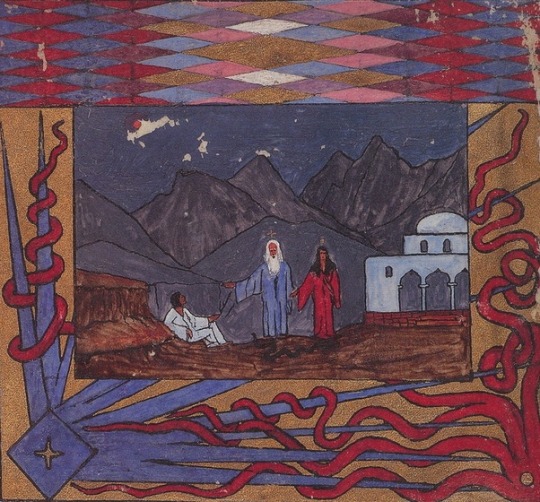
The scene of the mystery play is a deep place like the crater of a volcano. My deep interior is a volcano, that pushes out the fiery-molten mass of the unformed and the undifferentiated. Thus my interior gives birth to the children of chaos, of the primordial mother. He who enters the crater also becomes chaotic matter, he melts. The formed in him dissolves and binds itself anew with the children of chaos, the powers of darkness, the ruling and the seducing, the compelling and the alluring, the divine and the devilish. These powers stretch beyond my certainties and limits on all sides, and connect me with all forms and with all distant beings and things, through which inner tidings of their being and their character develop in me.
Because I have fallen into the source of chaos, into the primordial beginning, I myself become smelted anew in the connection with the primordial beginning, which at the same time is what has been and what is becoming. At first I come to the primordial beginning in myself. But because I am a part of the matter and formation of the world, I also come into the primordial beginning of the world in the first place. I have certainly participated in life as someone formed and determined, but only through my formed and determined consciousness and through this in a formed and determined piece of the whole world, but not in the unformed and undetermined aspects of the world that likewise are given to me. Yet it is given only to my depths, not to my surface, which is formed and determined consciousness.
This is a powerful image. Because mystical visions are predicated on madness to some extent, they are a raw outpouring of pure chthonic material, primordial Khaos at its finest. Engaging with it requires alchemical dissolution or ego death. Everything that is “formed” (i.e. fixed) in you dissolves or “melts” into the prima materia, and is reformed, having been infused with underworldly divine power. This is more or less participation in the primordial process of creation itself. Consciousness interacts only with the “formed and determined,” i.e. fixed, aspects of existence. So, you need your depths to engage with the unformed and undetermined, i.e. volatile, aspects of existence.
Most of the rest of this chapter is an analysis of what Elijah and Salome represent, even though Elijah explicitly stated that they do not represent anything. Jung interprets them as representing the dual faculties of “precognition and pleasure,” or thinking and feeling. Yup, this is where the thinking/feeling axis on the MBTI test comes from! It comes from Jung trying to make sense of this particular vision. Jung says that “Both are equally old and in nature intimately one,” and interprets the serpent as representing a mediator between the two. Some people are more inclined towards thinking, and others towards feeling, but you need some degree of both to avoid falling out of balance. Jung assumes that because he’s a thinking person, he fears Salome. My bet is, that’s not why. I think he fears Salome because he struggles to see divinity in a stereotypically “evil” figure. He’s struggling against his conditioning that pleasure is evil.
I’m not going to go through Jung’s analysis of the specific symbols in his vision, because to be honest, very little of it resonates for me. Jung does not interpret these visions the way I would, and I think that much of his interpretation misses the obvious because he’s trying so hard to force a disturbing truth into a comfortable framework. But, it’s not my vision or my mystery, so I’m not going to tell him he’s wrong.
Instruction
Jung goes back to Elijah’s house the next night. He says to Elijah,
I have toyed with myself enough. I played hypocritical games with myself and they all would have disgusted me, were it not clever to perform what others expect of me. It seems to me as if I were more real here [in the dream world]. And yet I do not like being here.
I completely relate to the sensation of feeling more real in my dream world than I do in the physical world. I definitely feel like that. But I don’t feel as unsettled in my dream world as Jung does at Elijah and Salome’s house. Jung recognizes that most of his life in the external world involves “hypocritical games,” doing things that don’t really resonate and aren’t really meaningful for the sake of propriety and fitting within the societal expectations that have been set for him. Unfortunately for him, he doesn’t seem comfortable in either world.
I forgot to mention that there is a scrying crystal inside the house. Previously, Jung saw the Garden of Eden and Odysseus with the sirens in the crystal. This time, he sees Mary with baby Jesus, St. Peter, the Pope, then Buddha, then Kali.
Elijah provides Jung with some good advice about thoughts that I could use. Jung says that thoughts are dangerous because men confuse them with themselves, and Elijah says:
Will you therefore confuse yourself with a tree or animal because you look at them and because you exist with them in the same world? Must you be your thoughts, because you are in the world of your thoughts? But your thoughts are just as much outside your self as trees and animals are outside your body.
Because I live in my thoughts, my thoughts cause me a lot of trouble. Thoughts that cause me shame are particularly awful, because I feel like just having the thought reflects badly on me, when really only an action would reflect badly on me. The idea of thought as something separate from myself, something that exists around me as nature physically exists around me, is genuinely good therapeutic advice. (Therapeutic advice from the work of a psychotherapist? You don’t say!) I shouldn’t take my thoughts seriously, or interpret them as expressions of my identity.
Salome calls herself Jung’s sister. He asks who their mother is, and she says that it is Mary. It’s getting worse! Jung is absolutely sent reeling by this revelation:
Is it a hellish dream? Mary, our mother? What madness lurks in your words? The mother of our Savior, our mother? When I crossed your threshold today, I foresaw calamity. Alas! It has come. Are you out of your senses, Salome?
I sort of relate, in that it can be extremely difficult to think that you actually are that special. It seems the height of hubris to claim to be the child of a powerful goddess (yes, I’m calling Mary a goddess, because she functions like one), even when your spirits explicitly tell you that this is the case.
Jung tries to rationally make sense of it by continuing to insist that Elijah and Salome and Mary are symbols that he hasn’t interpreted yet. This is Elijah’s response:
You may call us symbols for the same reason that you can also call your fellow men symbols. But we are just as real as your fellow men. You invalidate nothing and solve nothing calling us symbols. […] We are certainly what you would call real. Here we are, and you have to accept us. The choice is yours.
Daaamn. Of course, Jung insists on interpreting Elijah and Salome as symbols of the “thinking” and “feeling” principles anyway. The idea of the actual entities Elijah and Salome being the same being freaks him out too much. This is one of the big reasons why I think that his interpretations throughout these three chapters are wrong. He can only process all of this by interpreting it as symbolic language as opposed to taking it at face value, because he can’t make sense of it any other way.
If you do not acknowledge your yearning, then you do not follow yourself, but you go on foreign ways that others have indicated to you. So you do not live your life but an alien one. But who should live your life if you do not live it? It is not only stupid to exchange your own life for an alien one, but also a hypocritical game, because you can never really live the life of others, you can only pretend to do it, deceiving the other and yourself, since you can only live your own life.
[…]
To live oneself means: To be one’s own task. Never say that it is a pleasure to live oneself. It will be no joy but a long suffering, since you must become your own creator. If you want to create yourself, then you do not begin with the best and the highest, but with the worst and the deepest. The flowing together of the stream of life is not joy but pain, since it is power against power, guilt and shatters the sanctified.
Good advice in general. Pay attention to what you really want out of life, not what society says you should want. If you only do what everyone around you says you should and acquire what they say you should want, then you’re living someone else’s life instead of your own. No one else is going to live your life for you, and you can’t live anyone else’s life either. So embrace your own desires, and live your own life. That’s not an easy thing, because you have to do the work to reinvent yourself in your own image instead of following someone else’s self-help guidebook (literal or figurative). And you have to begin by doing Shadow work, which is extremely difficult. Everything that you hold sacred will likely ring hollow throughout that process, because you won’t see it in the same way until you can find divinity for yourself.
As the God developed in me, I thought he was a part of my self. I thought that my “I” included him and therefore I took him for my thought. But I also considered that my thoughts were parts of my “I.” Thus I entered into my thoughts, and into the thinking about the God, in that I took him for a part of my self.
[…]
Therefore you love reasonable and orderly thoughts, since you could not endure it if your self was in disordered, that is, unsuitable thoughts. Through your selfish wish, you pushed out of your thoughts everything that you do not consider ordered, that is, unfitting. You create order according to what you know, you do not know the thoughts of chaos, and yet they exist.
Jung confused the developing God for an aspect of himself, just as he worshipped the soul believing it was God. Because he hates thoughts that he considers disorganized or unreasonable, he roots out all the thoughts that don’t fit his projection of what God should be. Where does all the “disordered” thought end up? The Shadow.
My thoughts are not my self, but exactly like the things of the world, alive and dead. Just as I am not damaged through living in a partly chaotic world, so too I am not damaged if I live in my partly chaotic thought world. Thoughts are natural events that you do not possess, and whose meaning you only imperfectly recognize. Thoughts grow in me like a forest, populated by many different animals. But man is domineering in his thinking, and therefore he kills the pleasure of the forest and that of the wild animals. Man is violent in his desire, and he himself becomes a forest and a forest animal. Just as I have freedom in the world, I also have freedom in my thoughts.
This is good advice for me personally. My thoughts can be scary and chaotic, but they do not damage me. I love the image of thoughts being like a forest. I should just enjoy my time amongst the wild things, and the absolute freedom that my thoughts give me, without any shame.
Resolution
Jung dreams that he is standing on a ridge in a wasteland, with day on one side and night on the other. A black snake is on the night side, and a white snake is on the day side. They fight each other, with Elijah watching from above. The black snake’s head turned white, and they both curled around themselves.
Jugn and Elijah climb to a stone circle that is the Temple of the Sun. Elijah turns into Mime (a dwarf from Wagner’s The Ring). Mime brings Jung to springs in a cave, that confer wisdom on those who drink from them. Jung doesn’t trust Mime, and leaves the cave without drinking, feeling discombobulated, and follows a snake to Elijah’s house. He sees a series of visions in the crystal, ending with Christ on the cross with the black serpent coiled about the base. The serpent coils around Jung’s own feet, and up his body — he turns into Aion/Arimanius, the Mithraic lion-headed god. Salome says, “You are Christ.”
This is an amazingly profound experience. Jung experiences the mystery of Christ’s death and resurrection directly, and experiences it in the form of a pagan deity, the primordial creator god Aion or Phanes. In a way, it is the ultimate Mystery. It goes back to what Jung said before about how Christians should not deny that Jesus is a part of them, that you yourself are Christ. That is why Mary is named as Jung’s mother, because he is not separate from Christ.
If you are aggravated against your brother, think that you are aggravated against the brother in you, that is, against what in you is similar to your brother.
As a man, you are part of mankind, and therefore you have a share in the whole of mankind, as if you were the whole of mankind. If you overpower and kill your fellow man who is contrary to you, then you also kill that person in yourself and have murdered a part of your life. The spirit of this dead man follows you and does not let your life become joyful. You need your wholeness to live onward.
This is just a lesson on projection again, but I like the phrasing. We’re all one being, all incarnations of the Divine, so any harm we do against each other is harm against the corresponding parts of ourselves. You can’t experience any authentic joy, or really live at all, with that sort of burden. That’s what makes Shadow work worth it.
If you go to thinking, take your heart with you. If you go to love, take your head with you.
I’m still not sure how I feel about the whole thinking/feeling dichotomy, but I like this phrase.
I saw a new God, a child, who subdued daimons in his hand. The God holds the separate principles in his power, he unites them. The God develops through the union of the principles in me. He is their union.
Not much to say about this that I haven’t already said, except that I’m once again reminded of Dionysus, who unites all opposites and commands all daimons. I feel like I can get myself there. Maybe I already am. It feels good to unite opposites in oneself; it’s hard to do, but once you’ve done it, it feels comfortable and fulfilling.
Jung interprets WWI as people learning self-sacrifice, Christ’s mystery, which will teach them to look inward. “The spirit of the depths has seized mankind and forces self-sacrifice upon it.”
That's the end of Liber Primus! I'll start posting the sections of my commentary on Liber Secundus soon. There's more very cool art to come!
#the red book#the red book jung#carl jung#jungian psychology#symbols#archetypes#shadow work#mysticism#occult#occultism#jungian archetypes#long post#analysis#commentary#liber novus#illuminated manuscript#mystical experiences#mystical art#tw murder
14 notes
·
View notes
Text
Mythic Symbolism in the Mayfair Witches
a mythic and psychoanalytical thread exploring themes of: alchemy, star lovers, fairytales, greek myth, three fold goddesses, and beastly grooms within the amc series ‘anne rice’s mayfair witches’
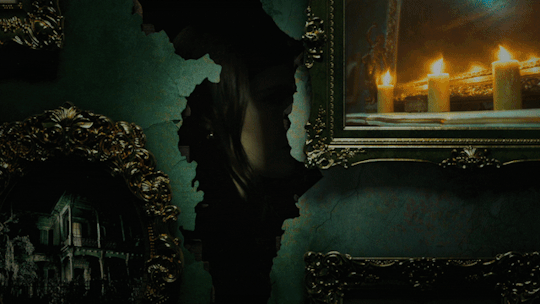
*disclaimer*
This post will be split up into multiple parts as it is very lengthy.
The point of this post is not to discuss how the show adapts the source material, but instead how the show stands on its own, utilizing psychological and mythic motifs in its plot and character journeys.
For those who want to see the show, it is available on physical DVD and Blue-Ray as well as streaming. The entire eight episode first season is available on AMC+ which you can get a free trial for through Prime Video channels.
A second season has also already been green-lit. However the first season ends on what I would consider a very satisfying note.
Part One, Part Two
————————————————————————
THE TRIPLE GODDESS: MAIDEN, MOTHER, CRONE
Aside from Rowan’s story, there are two other Mayfair women whose lives we follow. The progenitor Suzanne in the 17th century, and Rowan’s biological mother Deirdre. While together they each represent one of the goddesses, we also see each of them move through these roles in their own journeys.
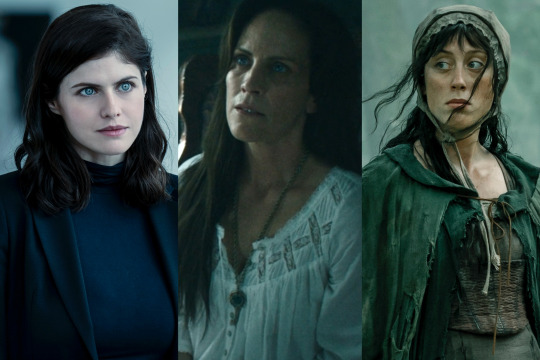
The concept of the triple goddess also has strong roots in the myth of the Greek Fates and the Norns of Norse myth. Both represent the Birth/Life/Death cycle. This archetype is also strongly associated with Persephone, Demeter and Hecate, or Artemis, Selene, and Hecate.
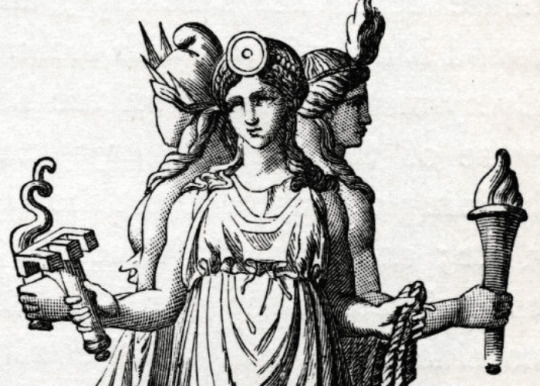
Each of these Mayfair women has a role directly associated with life and death. For example, Suzanne is a midwife whose work, like her aunt says, is not just curing people but also helping give them a good death.
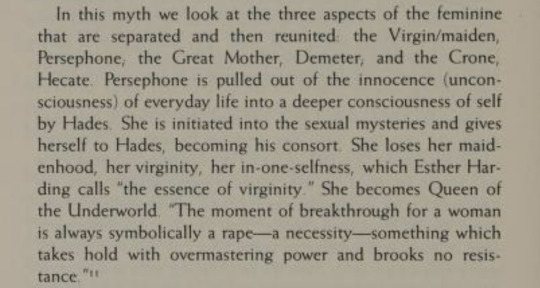
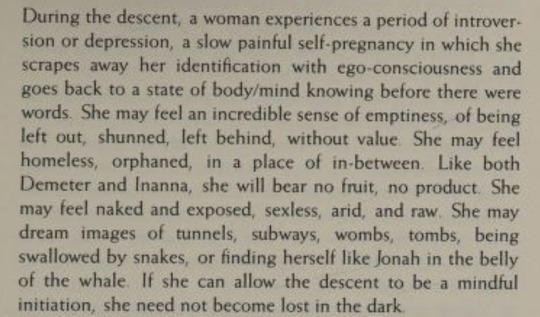
Rowan, like Persephone as Maureen Murdock puts it, is pulled out of the innocence of everyday life into a deeper consciousness of self by Hades. Or in this case Lasher.
Furthermore, Deirdre like Demeter is overcome with grief and surrenders to her sorrow, when her daughter is taken from her. However in this instance her daughter is taken away by Carlotta.
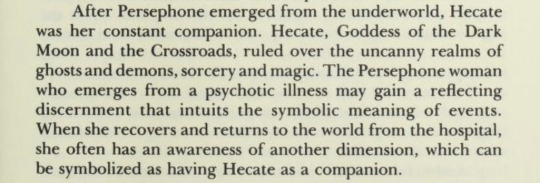
Suzanne is like Hecate as Jean Shinoda Bolen describes, a guiding companion force. When Rowan meets a crossroads in her journey at the Witching Hour, Suzanne is there to guide her as the first matriarch, as a mistress of life and death.
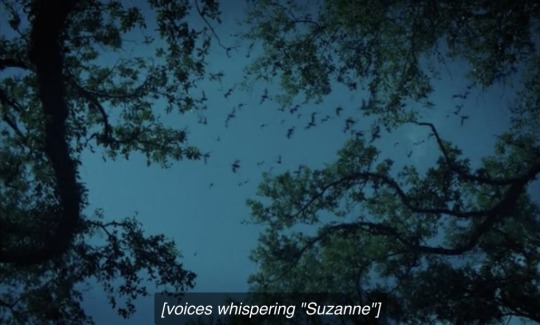
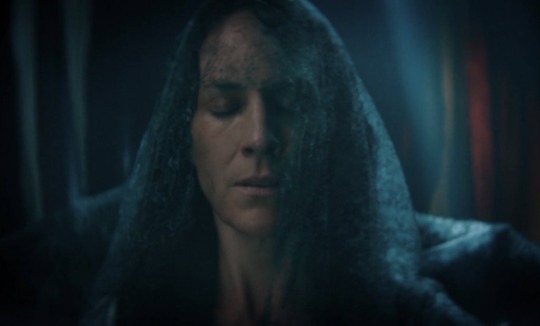
They each have mirroring moments in their journeys. Just like Rowan, Suzanne too was visited by a murder of crows, and the Dark Night of the Soul that Rowan is facing is likened in dialogue to the dark subconscious place Deirdre is trapped. In fact, episode two is titled The Dark Place.
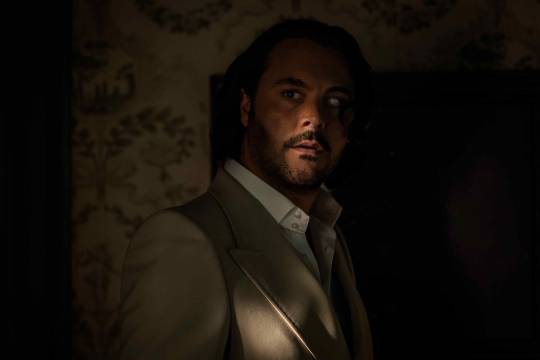
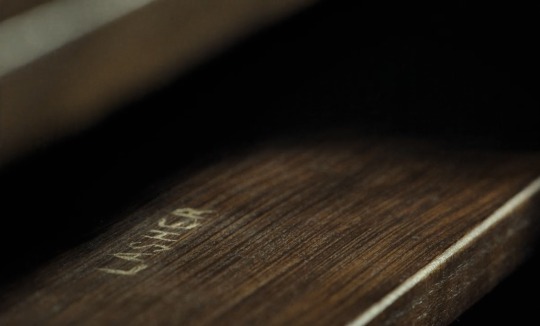
Each of them share the same animus. A being known as Lasher. He is bonded to each of the “Designees”, the matriarchs of the Mayfair family. We’ll delve into him soon enough.
DREAMS AND THE SUBCONSCIOUS
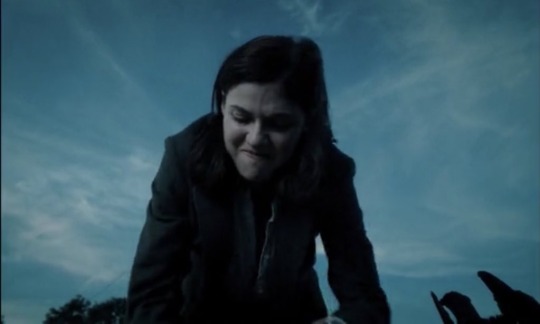
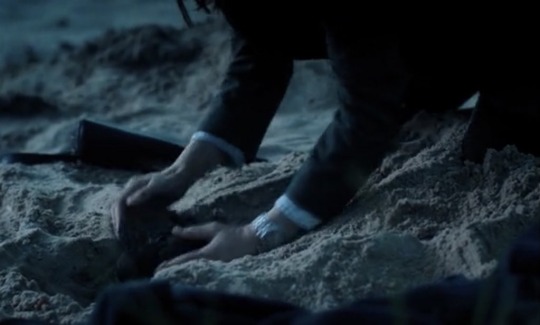
When Rowan uses her powers on the crows, causing a couple of them to fall down dead, she lays them down in her jacket, and drives off to a beach. She then walks to the shore and digs into the sand until she has a hole she can bury the crows in.
After this she takes a pill to force herself to sleep, both exhausted and desperate to flee into oblivion to escape her consciousness as it begins to recognize her shadow. But now as she is laying by the ocean, she is submerged in the unconscious.

She experiences a dream that evokes Cinderella, fairy godmothers, transformation, and spiritual death. She is wearing a shimmering blue gown, and is chasing after Ellie who is leading her somewhere. She runs after her mother, who leads her to The Mayfair House.
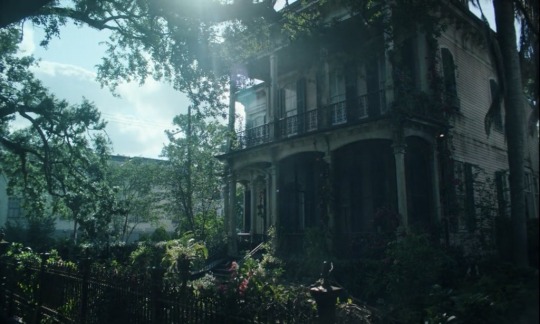
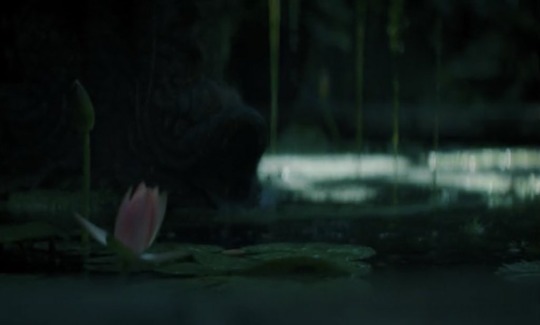
Whenever we see the house, it’s presented as a piece of nature itself, overgrown, hidden among trees, and the sound of water. It is a true representation of the subconscious, the underworld.
A FALSE START AND CLEANSING FIRE
When she finally goes to New Orleans, we think she’s going to get the answers she needs and reconnect with the feminine. However forces intervene and Rowan’s first impression of her Mayfair lineage and the power she possesses is one of fear, in part thanks to Ciprien Grieve. He means well, but his actions and perspective are a literal extension of Ellie as the “too good mother”.
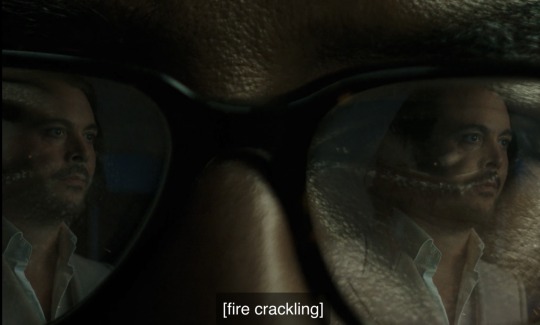
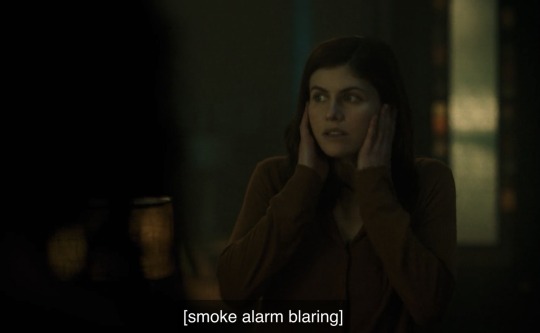
The organization called the Talamasca that Ciprien is part of, actually puts a spell around his building where Rowan is staying. Which acts as a wall or barrier keeping Rowan separated from her Shadow. It was made to keep Lasher out. This is when we have that cleansing flame, as Lasher sets a fire to get the alarms to go off and Rowan to leave the building.
And the first thing she intends to do, is find the Mayfair House which as we know is her subconscious…
End of Part Two
#heroines journey#alchemy#jung’s shadow#jungian archetypes#greek mythology#mythology#folklore#fairytales#mayfair witches#rowan mayfair#rowan x lasher#mythic romance#alchemical marriage#maureen murdock#anne rice#myth and legend#triple goddess#persephone#demeter#hecate#cinderella
20 notes
·
View notes
Text
Autumn Equinox Observations | Dark Academia 🌾 MBTI | Earth Signs
When the days and nights are the same length the symbolism in the collective unconscious is especially significant. Here are some observations for 🍂 Earth Signs 🍁 In some ways naturalled attuned to this time of year.
🐌 As always, take what resonates and leave the rest! 🌬
🍊 this time of year can have a sense of 'all will be revealed' and 'how the tables have turned. For Taurus, ruled by venus, themes of fertility and harvest are yours, whatever energy is coming your way, is coming in abundance. Think of a writers block freeing up, or waiting ages for a job offer and 3 come along at once
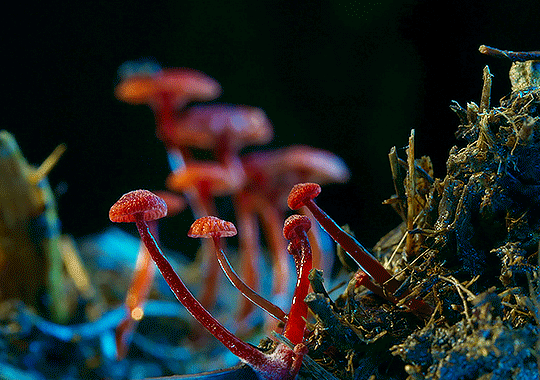
🍎 the traditional tendencies of capricorn can be felt early even though we are three signs away in libra. Yet this time is all to do with the earth and you may feel like you cannot wait for your sign to come around. might want winter or the rest of autumn to come faster. remedy the blues by curling up with a good book
🍐 this is a time of exchange, thus this can even manifest emotionally. you may be exchanging one bad mindset for a better one. this can also be a time of travels, literal exchanges of goods or services, or switching one group of people for another.
🍓 for virgo - this exchange is MOST likely to be practical for you of all the signs. for you it is MOST likely to involve physical goods or services. this year you may find your brain freeing up as Mercury finally leaves all vestiges of retrograde energy aside on the 22nd when it reaches it's furthest elongation at the end of the Mercury Max cycle
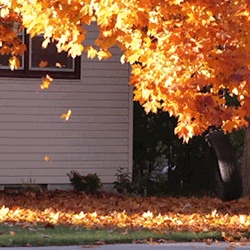
🍍 of all the earth signs it's Capricorn who may have the most difficult time as this is a time of change which confronts your need for tradition. you can mark the occasion by investing in a new aesthetic, whether that means a desk tidy, new pair of glasses or so on. You are one of the signs who suits the dark academia aesthetic best and doing something like this can make any life changes easier
🍏 all signs - you may have a tendency to intellectualise and overanalyse any changes or life events that happen at this time, but you can combat this by going with your gut and feelings as opposed to what is practical. this can be harder for you than for water signs but shadow work on the upcoming Harvest Full Moon can make things easier 🌚

🍄 most likely to embrace the change are perceiving types ESXP ISXP INFP and ENFP 🦝
🌽 SJ types have a tendency to enjoy this time of year as there is a lot to keep busy with in terms of new school terms, foraging and preserving wild food, or whatever floats your boat
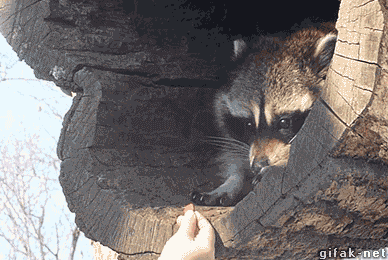
🌰 INFJ and ENFJ have a tendency to be in their element around this time of year as life tends to throw them the perfect combination of variety and routine. Taurus XNFJ may have the urge to buy new clothes. Virgo INFJ may enjoy a new venture and Capricorn ENFJ tends to indulge themselves around this time 🪶
Archetypes you may attract:
At times like this our ability to tap into the collective unconscious is particularly strong. Thus there may be a mythological element to the people we attract. This can look like:
🍁 People showing up that mimic patterns found in myth and legend (e.g. A relationship dynamic mimics, say, Orpheus and Eurydice)
🍁 Notable archetypes from the tarot around this time are The Empress (harvest), Justice (balance), Judgement, The Moon Reversed, The Emperor, and any of the Kings and Queens
🍁Several comets will be nearing earth in the period after the equinox and into october. These can signify temporal archetypes such as change, destruction/creation, karma, lessons learned etc. I will do another post on these in more detail.
🍁Virgo and Taurus, if your luck has been looking down you may attract the mentor archetype (from Joseph Campbell's hero's journey) around this time as your energy is in the right place and those well suited to you can tell when you need an extra hand.
🍁Capricorn, you may be in the return home stage of the hero's journey. As the year reaches it's final quarter your sign approaches (although it is not there yet!) however, Saturn, your ruling planet, governs some of the themes of reaping and sowing associated with the Equinox. Thus, you may be returning to stage one, the drawing board, or the start of a cycle.

If you found this interesting (especially the archetypes bit) I am offering free readings on my Etsy Store for the Tarot of Archetypes which looks at this kinda stuff in more detail. Use the code GIVEAWAY1234 for 100% off (Tarot of Archetypes only)
Alternatively DM me to suggest future topics if you want to see more of this kinda Jungian Archetypal spin on them - we have some pretty neat comets coming up, stuff on Ophiuchus, plus the Harvest Moon and Draconids meteor shower in October HOWEVER I am always open to suggestions and challenges
#dark academia#dark academic aesthetic#cottagecore#astrology#astroblr#astro observations#infj#enfj#infp#enfp#virgo#libra#taurus#capricorn#shadow work#jungian archetypes#carl jung#joseph campbell#tarot#tarot archetypes#the empress#the emperor#the moon reversed#kings tarot#queens tarot
49 notes
·
View notes
Text
I think a very bad issue within the typology community is how people shape themselves to adhere to their typology.
I recall a friend of mine who identified as an TiNe it(n) sp5 and they ensured the way they acted and responded to things were how a “typical e5 should respond”. It’s just kinda sad to see because people within the typology “community” will go against their natural human nature and response to comfort themselves that they’re the typology placements they are, if that makes ANY sense.
It should really be vice versa; you adjust your typology placements accordingly when you find that something doesn’t quite align with your behaviour, not you adjust your behaviour when you fine that it doesn’t align with your typology. But even then, one TiNe and another TiNe person are the same. It’s just really silly.
#typology#mbti personality types#mbti#personality#enneagram#jungian psychology#jungian typology#jungian archetypes#mbti personalities
7 notes
·
View notes
Text
Take care when battling your demons that you don't banish the best thing about you
- Friedrich Nietzsche
#inner work#self work#shadow work#friedrich nietzsche#jungian shadow#philosophy quotes#existentialism#jungian psychology#jungian archetypes#philosophy#psychology quotes#psychology#shadow self#shadow work quotes#witchblr#fighting my demons#fighting demons#dark psychology#dark night of the soul#dark side
100 notes
·
View notes
Text
JUNGIAN ARCHETYPES & their Astrological Counterpart
12 JUNGIAN ARCHETYPES IN ASTROLOGY:
The Jester (Aries)
The Lover (Taurus)
The Magician (Gemini)
The Caregiver (Cancer)
The Creator/Artist (Leo)
The Sage (Virgo)
The Everyman (Libra)
The Rebel (Scorpio)
The Explorer (Sagittarius)
The Ruler (Capricorn)
The Hero (Aquarius)
The Innocent (Pisces)
1. The Innocent Pisces/12th house
Motto: Free to be you and me
Core desire: to get to paradise
Goal: to be happy
Greatest fear: to be punished for doing something bad or wrong
Strategy: to do things right
Weakness: boring for all their naive innocence
Talent: faith and optimism
The Innocent is also known as: Utopian, traditionalist, naive, mystic, saint, romantic, dreamer.
2. The Everyman Libra/7th House
Motto: All men and women are created equal
Core Desire: connecting with others
Goal: to belong
Greatest fear: to be left out or to stand out from the crowd
Strategy: develop ordinary solid virtues, be down to earth, the common touch
Weakness: losing one’s own self in an effort to blend in or for the sake of superficial relationships
Talent: realism, empathy, lack of pretense
The Everyman is also known as: The good old boy, regular guy/girl, the person next door, the realist, the working stiff, the solid citizen, the good neighbor, the silent majority.
3. The Hero Aquarius/11th House
Motto: Where there’s a will, there’s a way
Core desire: to prove one’s worth through courageous acts
Goal: expert mastery in a way that improves the world
Greatest fear: weakness, vulnerability, being a “chicken”
Strategy: to be as strong and competent as possible
Weakness: arrogance, always needing another battle to fight
Talent: competence and courage
The Hero is also known as: The warrior, crusader, rescuer, superhero, the soldier, dragon slayer, the winner and the team player.
4. The Caregiver Cancer/4th House
Motto: Love your neighbour as yourself
Core desire: to protect and care for others
Goal: to help others
Greatest fear: selfishness and ingratitude
Strategy: doing things for others
Weakness: martyrdom and being exploited
Talent: compassion, generosity
The Caregiver is also known as: The saint, altruist, parent, helper, supporter.
5. The Explorer Sagittarius/9th House
Motto: Don’t fence me in
Core desire: the freedom to find out who you are through exploring the world
Goal: to experience a better, more authentic, more fulfilling life
Biggest fear: getting trapped, conformity, and inner emptiness
Strategy: journey, seeking out and experiencing new things, escape from boredom
Weakness: aimless wandering, becoming a misfit
Talent: autonomy, ambition, being true to one’s soul
The explorer is also known as: The seeker, iconoclast, wanderer, individualist, pilgrim.
6. The Rebel Scorpio/8th House
Motto: Rules are made to be broken
Core desire: revenge or revolution
Goal: to overturn what isn’t working
Greatest fear: to be powerless or ineffectual
Strategy: disrupt, destroy, or shock
Weakness: crossing over to the dark side, crime
Talent: outrageousness, radical freedom
The Outlaw is also known as: The rebel, revolutionary, wild man, the misfit, or iconoclast.
7. The Lover Taurus/2nd House
Motto: You’re the only one
Core desire: intimacy and experience
Goal: being in a relationship with the people, work and surroundings they love
Greatest fear: being alone, a wallflower, unwanted, unloved
Strategy: to become more and more physically and emotionally attractive
Weakness: outward-directed desire to please others at risk of losing own identity
Talent: passion, gratitude, appreciation, and commitment
The Lover is also known as: The partner, friend, intimate, enthusiast, sensualist, spouse, team-builder.
8. The Creator/Artist Leo/5th House
Motto: If you can imagine it, it can be done
Core desire: to create things of enduring value
Goal: to realize a vision
Greatest fear: mediocre vision or execution
Strategy: develop artistic control and skill
Task: to create culture, express own vision
Weakness: perfectionism, bad solutions
Talent: creativity and imagination
The Creator is also known as: The artist, inventor, innovator, musician, writer or dreamer.
9. The Jester Aries/1st House
Motto: You only live once
Core desire: to live in the moment with full enjoyment
Goal: to have a great time and lighten up the world
Greatest fear: being bored or boring others
Strategy: play, make jokes, be funny
Weakness: frivolity, wasting time
Talent: joy
The Jester is also known as: The fool, trickster, joker, practical joker or comedian.
10. The Sage Virgo/6th House
Motto: The truth will set you free
Core desire: to find the truth.
Goal: to use intelligence and analysis to understand the world.
Biggest fear: being duped, misled—or ignorance.
Strategy: seeking out information and knowledge; self-reflection and understanding thought processes.
Weakness: can study details forever and never act.
Talent: wisdom, intelligence.
The Sage is also known as: The expert, scholar, detective, advisor, thinker, philosopher, academic, researcher, thinker, planner, professional, mentor, teacher, contemplative.
11. The Magician Gemini/3rd House
Motto: I make things happen.
Core desire: understanding the fundamental laws of the universe
Goal: to make dreams come true
Greatest fear: unintended negative consequences
Strategy: develop a vision and live by it
Weakness: becoming manipulative
Talent: finding win-win solutions
The Magician is also known as:The visionary, catalyst, inventor, charismatic leader, shaman, healer, medicine man.
12. The Ruler Capricorn/10th House
Motto: Power isn’t everything, it’s the only thing.
Core desire: control
Goal: create a prosperous, successful family or community
Strategy: exercise power
Greatest fear: chaos, being overthrown
Weakness: being authoritarian, unable to delegate
Talent: responsibility, leadership
The Ruler is also known as: The boss, leader, aristocrat, king, queen, politician, role model, manager or administrator.
ARCHETYPES INFO SOURCE:
#jung#carljung#jungian psychology#astrology#archetypes#archetype#aquarius#aries#cancer#capricorn#gemini#leo#libra#philosophy#pisces#psychology#humanistic#personality type#jungian archetypes#astrology observations
128 notes
·
View notes
Text
The word panic comes from Pan. He went about whistling or playing his pipe and frightening the shepherds. The shepherd's fear is like the stampede of the herds.
Occasionally a herd begins to stampede for no obvious reason, it is as if they were suddenly frightened by something. That happens to us also; at certain moments in the midst of real nature one is suddenly seized with terror without knowing why. Sometimes it is a particularly lonely and uncanny spot, but at other times one cannot say what it is, a kind of animal fear seizes one.
“It is the great god Pan that causes the panic terror. Then that nature demon became a great philosophical god on account of the transformation in the meaning of the name.
The Greek word pas means all, the whole, and pan, the neuter, means the universe; and that meaning became attached to the god as the universal nature spirit.”
- Carl Jung, Visions Seminar, Pages 580-581
#depth psychology#jungian archetypes#carl jung#jungian shadow#jungian psychology#archetypes#occult#magick#psychology#pan#greek mythology#mythology
27 notes
·
View notes
Text
I find it crazy how little people online are talking about Homebody (the horror game produced by the game grumps).
Am i just looking in the wrong places or is there literally no one talking about this game, let alone its symbolism?? Where are the theories? Where are the breakdowns discussing Sartre and Jung?! Im going crazy!
#homebody#homebody game#no exit#jean paul sartre#carl jung#jungian archetypes#homebody analysis#im so mand there's no content!#i know enough to catch the references but im not educated enough to fully disect the meanings!#where are the hours long essays on Homebody and No Exit and how Hell Is Other People etc#please tell me if you know where they are
23 notes
·
View notes
Text
Intro to the Character Class System
Welcome to the Character Classification System! This is a personality system used to categorize patterns of behavior within characters across all forms of media. This system is broken down into six colors, which each character will possess three of. These colors are Red, Orange, Yellow, Green, Blue, and Indigo.
The Character Classification system proposes the belief that the differences in the values that a character prioritizes leads to diverging perspectives and subsequent behavioral patterns. In other words, the things we care about are determined by the people we are and the way we interact with others. These being: Nature, Experience, Direction, Structure, Sentiment, and Connection. Everyone wants all six, but it is the priority of importance in the eyes of the character that determines their class.
There are twenty classes in total. These are:
The Vagabond
The Warrior
The Sage
The Artist
The Tactician
The Warden
The Inventor
The Captain
The Dancer
The Merchant
The Athlete
The Judge
The Bard
The Knight
The Courier
The Jester
The Maestro
The Scholar
The Priest
The Lover
When presented with a situation, the character will most likely respond in accordance with their relevant colors. This response varies between the colors present of each individual classification, but presents itself as a natural baseline that a character will tend to rely on.
Now the real question: how is this helpful? Beyond identifying patterns of behavior in pre-existing characters, this system can be used as a template for new storytellers to create balanced and internally consistent characters from.
#characterclassificationsystem#ccs#character analysis#personality types#original character#character concept#character design#character personalities#16 personalities#enneagram#jungian archetypes#personality quiz#oc#ocs#typology#personality theory
18 notes
·
View notes
Text
typology blogs, i wuv u /p and i want to interact w u!!! bcz im into typology!!!!?
#typology#cognitive functions#jungian#socionics#attitundal psyche#enneagram#tritype#instictual variant#temperaments#attachment style#trauma response#big 5#global 5#motives#hexaco#jungian archetypes#moral alignment#ipersonic#psychosophy
4 notes
·
View notes